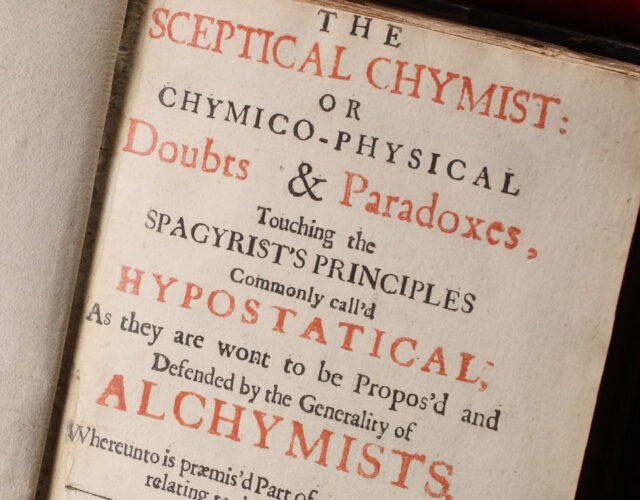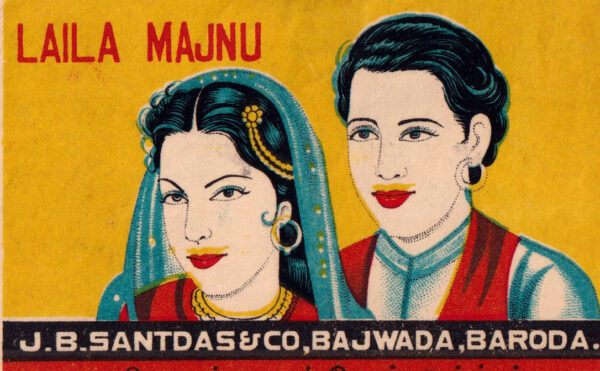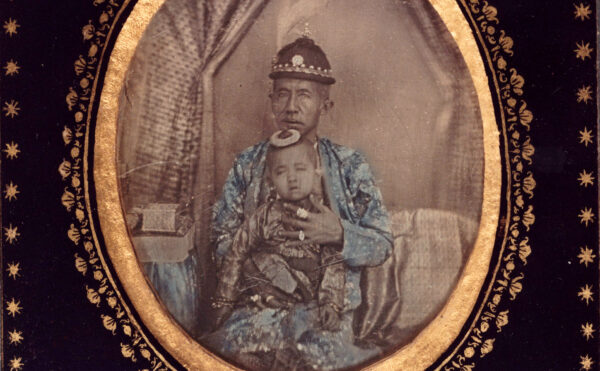The first edition of Boyle’s Sceptical Chymist (London, 1661) ranks as the holy grail of chemical-book collecting. Complete copies are almost unobtainably rare. And the work is an acknowledged landmark of science, having earned a place in lists of the most significant books in the history of science.
Interestingly, the book’s reputation is based less on what it is than on what it is perceived to be. That misperception began around 300 years ago, when chemistry was just turning from a grubby trade into a professional pursuit. Alchemy had an image problem. Unlike astronomy and physics (whose elite status was unquestioned), alchemy’s origin in dirty, smelly, smoky proto-chemical industries, like metallurgy, dyeing, and distilling, made it suspect.
Then there was the problem of transmuting base metals into gold. Alchemists were manifestly able to do many remarkable things: distilling alcohol and other flammable essences, chemically separating the metals in alloys, and dissolving metals—including gold—with powerful acids and then recovering them. But success in creating gold was so elusive that an aura of charlatanry swirled around alchemy for hundreds of years. And so, long before there was any theoretical reason to doubt the possibility of creating gold out of other substances, this longtime pursuit was abandoned.
Ever since the Middle Ages and throughout Boyle’s lifetime, the terms chemistry and alchemy (which derive from the same word) were basically synonymous. It was not until decades after Boyle’s death that alchemy was redefined as gold making and driven out of respectable laboratory practice. The term chemistry remained, symbolically purified of its charlatanry.
In the 19th century, when chemists went in search of their discipline’s origins, they found Boyle’s book, with its suggestive title The SCEPTICAL CHYMIST: or chymico-physical Doubts & Paradoxes, Touching the spagyrist’s principles Commonly call’d HYPO-STATICAL, As they are wont to be Propos’d and Defended by the Generality of ALCHYMISTS. The word alchymists was printed in big red letters, and many concluded that here was the very foundation of modern chemistry, with Robert Boyle taking a heroic stand against the prescientific alchemists.
Those who tried to read the text can be forgiven for misunderstanding Boyle; the book is apparently cobbled together from scraps of different dialogues with seven different figures representing different viewpoints, all written in a characteristically diffident Boylean style. Not until chemist and historian of science Lawrence Principe’s pioneering research in the late 1990s did the underlying meaning of the text become clear. Principe knew that there was no meaningful conflict during Boyle’s time between chemistry and alchemy. That knowledge, combined with Boyle’s manuscripts, letters, and other works showing him assiduously searching for the secret of transmutation, allowed Principe to see the Sceptical Chymist in a whole new light. The operative word in the subtitle was not alchymists but generality; Boyle needed the help of the elite alchemical adepts, and he could not find them among the gaggle of sooty lab workers. Far from repudiating transmutation, Boyle was trying to focus his fellow chemists on the true alchemical quest.




